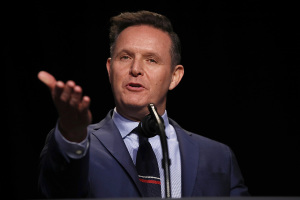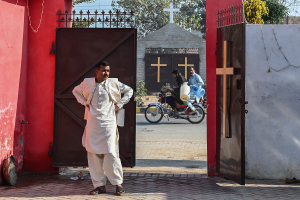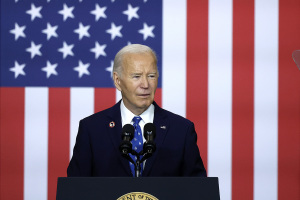5th Circuit upholds courtroom prayer tradition, overturns lower court ruling
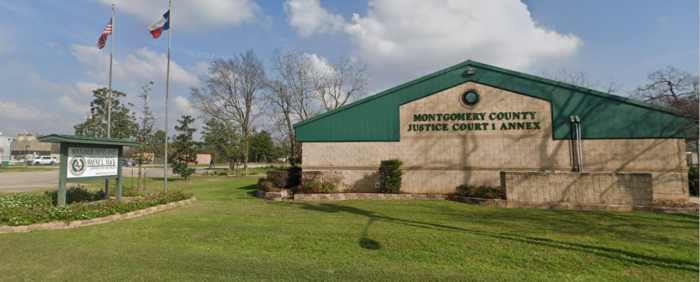
A federal appeals court has ruled in favor of a Texas judge sued for allowing religious leaders to begin court sessions with invocations.
The 5th U.S. Circuit Court of Appeals issued an opinion Thursday overturning a lower court ruling against Justice of the Peace Wayne Mack of Montgomery County, Texas.
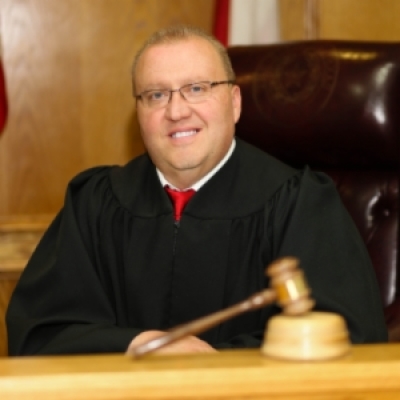
The court concluded that Mack could continue allowing his court sessions to begin with invocations because he tells attendees in advance that they are not required to attend the invocations and that their decision not to attend won't impact their cases.
"The plaintiffs cry coercion because Texas Justice of the Peace Wayne Mack opens his court with a ceremony that includes a prayer. But Mack also takes great pains to convince attendees that they need not watch the ceremony — and that doing so will not affect their cases," the opinion authored by Judge Jerry Smith, a Reagan appointee, reads.
"Some attendees say they feel subjective pressure anyway. Yet the plaintiffs have no evidence suggesting that 'coercion is a real and substantial likelihood.'"
Mack's court has a message inscribed on the door and television screen reading: "It is the tradition of this court to have a brief opening ceremony that includes a brief invocation by one of our volunteer chaplains. … You are not required to be present or participate."
The opinion states that Mack's Justice Court Chaplaincy Program enables faith leaders to "be 'on call' to respond to sudden tragedies" involving "only members of his own faith who ask for help."
"Mack permits JCC Program chaplains to pray in his court's opening ceremony," the opinion states.
"But he says his objective is to ensure that when local families request help with sudden tragedies, the JCC Program has a representative from 'every mosque, every temple, every synagogue, every church you can imagine' to respond."
Mack contends that his program includes clergy and lay people representing "Protestantism, Catholicism, Buddhism, Hinduism, Judaism, and Islam."
The court concluded that "to maintain a lawful prayer ceremony, Mack must ensure that (1) he has a policy of denominational nondiscrimination and that (2) anyone may choose not to participate and suffer no consequences."
"Mack has shown that the plaintiffs fail to materially dispute those elements," the opinion adds.
In a statement shared by his legal team at First Liberty Institute, Mack thanked the judges for upholding a "historical practice."
"I look forward to continuing to serve the people of Montgomery County," Mack stated.
Jeremy Dys, a senior counsel for First Liberty Institute, described the multifaith invocations authorized by Mack as part of a "rich tradition of opening public meetings — including judicial proceedings — with an invocation."
"Welcoming a volunteer chaplain to lead an invocation according to the tradition of his or her faith reflects the very best of our nation's values," Dys said.
Thursday's ruling is the latest development in a yearslong legal battle that began in 2015 when the secular legal group Freedom From Religion Foundation complained to the Texas State Commission on Judicial Conduct that Mack's prayer invocations violated the Establishment Clause of the First Amendment to the U.S. Constitution.
The commission dismissed the complaint while writing a letter to Mack "strongly [cautioning him] against continuing with the Justice Court Chaplaincy Program and [his] current courtroom prayer service."
In 2017, FFRF filed a lawsuit against Mack in federal court. The other plaintiff in the case is a "religiously unaffiliated" lawyer who frequently appeared in Mack's court and "objects to a government official telling him when or how to pray."
FFRF collected testimony from a lawyer and criminal defendant who appeared in Mack's court and alleged that the judge retaliated against them for declining to enthusiastically participate in the courtroom prayers.
The lawyer characterized Mack as "unprofessional and hostile" and suggested that Mack awarded him only "the bare minimum relief to which [he] was entitled."
The affiant who appeared in Mack's court as a criminal defendant testified that she had "very little doubt" that the judge tried to increase a fine levied against her in a plea agreement because of her "apathy" surrounding the prayer.
Mack insists that he "had no prior knowledge of [her] participation or lack thereof in the opening ceremonies."
Four years after FFRF first filed the lawsuit, a federal judge ruled in favor of the plaintiffs, concluding that the "defendant's practice of opening regular court proceedings with religious prayers is unconstitutional."
A three-judge panel on the Fifth Circuit Court of Appeals issued a stay in July 2021, which allowed the chaplain-led invocations to resume while litigation continued.
"The Fifth Circuit rightly concluded that Judge Mack's brief ceremony respects a rich historical tradition of opening judicial proceedings with an invocation," stated Bradley Hubbard, an attorney who argued the case before the court in April. "As the court explained, the 'history, character, and context' of Judge Mack's ceremony 'show that it is no establishment at all.'"
As highlighted on his campaign website, Mack became justice of the peace for Precinct 1 in Montgomery County, located near Houston, in 2014.
His territory covers the northern portion of the county. He won a full term unopposed in 2014 and was re-elected without major party opposition in 2018. Primary election results from this past spring show that Mack faces no major party opposition as he runs for a third term this fall.
Ryan Foley is a reporter for The Christian Post. He can be reached at: ryan.foley@christianpost.com



















